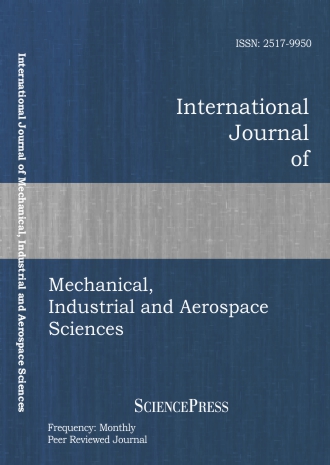
Scholarly
Volume:11, Issue: 9, 2017 Page No: 1540 - 1546
International Journal of Mechanical, Industrial and Aerospace Sciences
ISSN: 2517-9950
229 Downloads
Numerical Investigation of Multiphase Flow in Pipelines
We present and analyze reliable numerical techniquesfor simulating complex flow and transport phenomena related to
natural gas transportation in pipelines. Such kind of problems
are of high interest in the field of petroleum and environmental
engineering. Modeling and understanding natural gas flow and
transformation processes during transportation is important for the
sake of physical realism and the design and operation of pipeline
systems. In our approach a two fluid flow model based on a system
of coupled hyperbolic conservation laws is considered for describing
natural gas flow undergoing hydratization. The accurate numerical
approximation of two-phase gas flow remains subject of strong
interest in the scientific community. Such hyperbolic problems are
characterized by solutions with steep gradients or discontinuities, and
their approximation by standard finite element techniques typically
gives rise to spurious oscillations and numerical artefacts. Recently,
stabilized and discontinuous Galerkin finite element techniques
have attracted researchers’ interest. They are highly adapted to the
hyperbolic nature of our two-phase flow model. In the presentation
a streamline upwind Petrov-Galerkin approach and a discontinuous
Galerkin finite element method for the numerical approximation of
our flow model of two coupled systems of Euler equations are
presented. Then the efficiency and reliability of stabilized continuous
and discontinous finite element methods for the approximation is
carefully analyzed and the potential of the either classes of numerical
schemes is investigated. In particular, standard benchmark problems
of two-phase flow like the shock tube problem are used for the
comparative numerical study.
Authors:
References:
[1] A. A. Ignatev, The assessment of the reasons for the imbalance volumes of